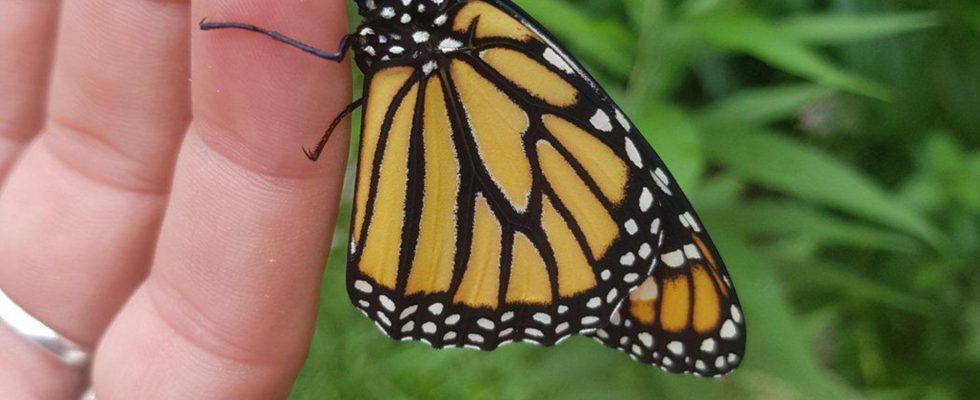Waterford woman raised 80 monarch butterflies in her kitchen this summer

Ambrea Chambers cries every time her children leave home — all 80 of them.
Advertisement 2
Article content
The Waterford woman raised seven dozen monarch butterflies this summer, collecting their tiny eggs from rural roadways and then watching in wonder as the endangered pollinators spread their bright orange wings for the first time inside her kitchen.
Article content
“To see a butterfly emerge from the chrysalis is pretty amazing,” Chambers said. “They are truly magical.”
Chambers started rearing butterflies after moving home to Waterford from Vancouver three years ago.
“I lost a friend just before I got home, and his family loves monarchs because they think of him when they see them,” she said.
That first summer, she found five caterpillars and raised them inside a small box.
Last year she bought two enclosures, each about two square feet, and ushered 19 butterflies into the world.
Advertisement 3
Article content
“Because they’re endangered, every little bit helps,” Chambers said. “About 95 per cent of them die before they even get to the butterfly stage.”
Butterfly eggs can be infected by pesticides or become a meal for flies and ants. Those that make it to the larva or pupa stage are just big enough for birds to snack on.
Raising butterflies is easy and affordable, Chambers said, with the only expense being the enclosures and the time it takes to collect the eggs and supply a steady diet of fresh milkweed.
Chambers logs and names each butterfly as it’s born.
“I figured it would be more fun to let them fly away with a name,” she said.
She went through the alphabet three times this summer, naming one male butterfly after her departed friend, Mike.
Advertisement 4
Article content
Stuck on a female name starting with Q, she came up with “Qtee.”
Chambers has also turned her rural property into a way station for migrating monarchs to rest and snack on nectar from the goldenrod and milkweed she planted.
“Last night I had over two dozen in my yard,” she said on Friday. “It’s pretty cool to see.”
Chambers said she sheds a tear as each of her butterflies takes flight, either to breed for a few weeks in Norfolk or, later in the season, embark on a weeks-long migration to Mexico.
The grandchildren of those delicate-winged aviators come back in the spring to lay more eggs for her to collect.
“The whole process is just magic,” she said.
JP Antonacci is a Local Journalism Initiative Reporter based at the Hamilton Spectator. The initiative is funded by the Government of Canada.
Article content

Comments
Postmedia is committed to maintaining a lively but civil forum for discussion and encourages all readers to share their views on our articles. Comments may take up to one hour for moderation before appearing on the site. We ask you to keep your comments relevant and respectful. We have enabled email notifications—you will now receive an email if you receive a reply to your comment, there is an update to a comment thread you follow or if a user you follow comments. Visit our Community Guidelines for more information and details on how to adjust your email settings.